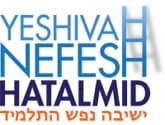Sefer Bamidbar is called “the book of countings” or “Numbers” because of the few times Hashem counted Bnei Yisroel in it. Sefer Bamidbar is so action packed and contains so many pivotal episodes, its strange that chazal see the census as the most crucial events in the sefer.
The concept of the national census in the Torah is explained as Hashem demonstrating his love for Klal Yisroel. When someone has something precious, he often checks on it, coutns it, makes sure its all there.. The most obvious example is a stack of money that you take out and count every now and then to make sure its all there. Throughout the sefer, Hashem needs to discipline and educate Klal Yisroel for their mistakes and misdeed. The main message though is that he loves us, and that is why he is so involved with us and our deeds.
The way Hashem counts is also by shevet. The shevatim together make up Bnei Yisroel and somehow reflect the image of the Kisei Hakavod, even though each has their own flag/charachter trait. The idea is that not only are there many ways to serve HAshem, but the Kisei Hakavod is lacking if the Klal serves HAshem in less than these 12 ways. All the middos of the shevatim are essential for Am Yisroel living up to its potential. All of Klal Yisroel is one body, “Ki Ish Echad BiLev Echad”.
We can apply this to our relationships with our students and children. A few years ago, Randy Pausch, a professor at Carnegie mellon, was diagnosed with terminal cancer and gave a famous “Last Lecture” on life lessons. In it he mentions an important idea about relating to children:
“I knew I was going to leave my kids letters and videos. (I was advised that) the crucial thing is to tell them the specific idiosyncratic ways in which I related to them. So I’ve been thinking a lot about that. I’ve decided to tell each of my kids things like: “I love the way you tilted back your head when you laughed.” I will give them specific stuff they can grasp”.
Children are made up “shevatim”, charachter traits, and it is imperative that we “take a census” of them to show children how we really love and appreciate them. Often we rely on a general “I love you/Im proud of you” etc. We need to “count” their charachter traits out for them in a specific and meaningful way. They need to know what we love, appreciate, respect about them, what we are proud of them for. Many adults know their parents love them and are proud of them, but they also think that their parents never really knew how hard things were/are for them or what their real accomplishments were/are. The truth is that parents do know, we just dont verbalize it in a specific way enough. The truth is we do this in all our relationships. How often do people stick to general expressions of emotion, only becoming more specific at their loved ones hesped? With our friends, souses, parents, siblings etc. we need to be more specific in our expressions. Hashem teaches us in sefer Bamidbar that when educating and disciplining it is crucial to successful development.
Shabbat Shalom, Have a great Shabbos,
-Ari Deutscher MSW
Menahel

Leave A Comment